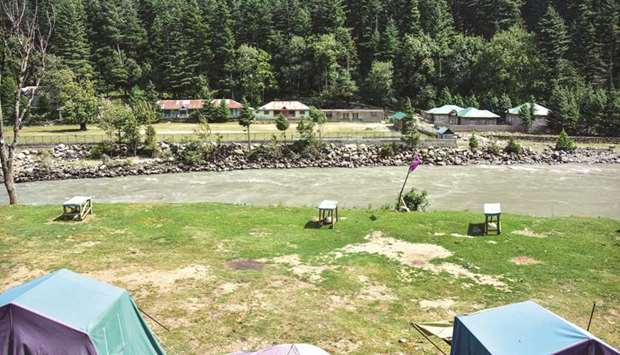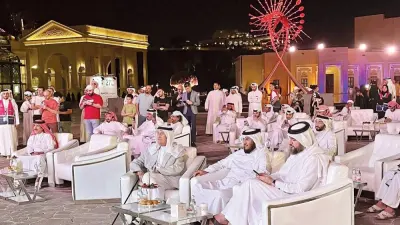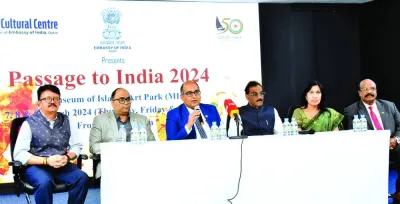Pakistan has vowed that it will take any measure necessary to “stand by” people in Kashmir, where an unprecedented communications blackout continues a day after the Indian government said it would revoke the territory’s special status and divide it in two.
Landline connections, Internet and mobile coverage in the territory were all suspended yesterday, while prominent political leaders who oppose the Indian government’s move were reportedly arrested.
The Indian government announced on Monday that it would drastically change Kashmir’s relationship with Delhi, removing the autonomy that the territory was granted in exchange for joining the Indian union after independence in 1947.
It also said it would divide the state of Jammu and Kashmir in two.
The announcement prompted anger from Pakistan, which also claims Kashmir and has fought two wars with India over the territory.
Prime Minister Imran Khan vowed yesterday to challenge at the UN security council India’s decision to strip Kashmir of its special autonomy, a move he warned could provoke conflict in the region.
He gave a forceful rebuke of Indian Prime Minister Narenda Modi’s decision on Monday to scrap the special status granted to the Indian-administered Kashmir from India’s constitution in front of a joint session of parliament in Islamabad.
The joint session of parliament was summoned by President Dr Arif Alvi to discuss the Kashmir crisis.
“We will fight it at every forum. We’re thinking how we can take it to International Court (of Justice) ... to the United Nations Security Council,” Khan said in his address to Pakistan’s parliament.
The prime minister demanded action from the global community as he accused Modi of violating international law in pursuit of an anti-Muslim agenda in India.
“If the world does not act today ... (if) the developed world does not uphold its own laws, then things will go to a place that we will not be responsible for,” Khan added.
The premier said changing the status of Kashmir would escalate tensions between India and Pakistan, which could lead to an all-out conflict.
“No one will be the winner in that case,” Khan warned India.
He went on to warn that “there will be a reaction” from Kashmiris if India tries to “crush them”, likely leading to more violence in the region which in the past has brought the nuclear-armed rivals close to conflict.
Foreign Minister Shah Mahmood Qureshi wrote to United Nations Secretary-General Antonio Guterres yesterday, accusing India of violating Security Council resolutions on Kashmir.
Qureshi is returning early from the Haj pilgrimage in Saudi Arabia as a result of the crisis, the foreign ministry said.
“Pakistan army firmly stands by the Kashmiris in their just struggle to the very end,” the country’s army chief, Gen Qamar Javed Bajwa, said. “We are prepared and shall go to any extent to fulfil our obligations in this regard.”
“Pakistan never recognised the sham Indian efforts to legalise its occupation” of the disputed mountainous region, spokesman Major General Asif Ghafoor said.
Highlighting the diplomatic turmoil caused by the move, Beijing also said that it opposed India’s decision to revoke the special status of Kashmir, saying it undermined China’s territorial sovereignty.
The contested region is divided between India, which controls Kashmir Valley and the Hindu-dominated region around Jammu city; Pakistan, which controls territory in the west; and China, which holds a thinly populated area in the north.
On Monday, Washington called for calm along the border that divides Kashmir between Pakistan and India.
The US state department also expressed concern at reports that politicians had been detained and urged “discussion with those in affected communities”, while Human Rights Watch pressed the security forces to act with restraint.
“Considering previous violations by troops, including excessive use of force against protesters, and the lack of accountability despite allegations of torture and extrajudicial killings, we hope that the government will ask security forces to be rights-respecting,” said Meenakshi Ganguly, South Asia director for Human Rights Watch.
The territory has held special status since 1954.
Under article 370 of the Indian constitution, Kashmir was given its own constitution, a flag, and autonomy over all matters except for foreign affairs and defence.
An additional provision, article 35a, has prevented people from outside the state buying land in the territory.
Many Kashmiris believe this is crucial to protecting the demography of India’s only Muslim-majority state, as well as its traditions and way of life.
Yesterday, an estimated 500 people demonstrated in Muzaffarabad, the largest city in Pakistani-administered Kashmir.
“We want to tell India that Jammu and Kashmir is not the property of anyone. The people of Jammu and Kashmir will not sit quietly until they get their right to self-determination,” protester Shamsher Khan told AFP.
Mass demonstrations were expected to kick off across the country after Friday prayers later this week.
The breathtaking Himalayan region of Kashmir has been disputed by India and Pakistan, who have fought two wars over the region, since independence in 1947.
Earlier this year they came close to war yet again, after a militant attack in Indian-held Kashmir in February was claimed by a group based in Pakistan, igniting tit-for-tat air strikes.
Armed Kashmiri rebels and many residents have fought for the Muslim-majority region’s independence or to join Pakistan in an insurgency that has left tens of thousands dead.
Editorials and social media in Pakistan were buzzing yesterday over Modi’s decision, with the English-language daily Dawn running a large headline on its front page reading: “New Delhi sheds fig leaf, robs held Kashmir of special status”.
In the Neelum Valley of Pakistan-administered Kashmir, which sits on the border and has seen heavy shelling between the two countries in recent weeks, there was a shutdown of shops and businesses in protest at India’s decision.
Many people in Kashmir have relatives on both sides of the border, but people on the Pakistani side say they have been unable to contact those in India for days after New Delhi restricted Internet and phone access.
Tanveer-ul-Islam migrated from India to Muzaffarabad in 1990.
His family, including his elderly mother and siblings, live in the Badgam district of Indian Kashmir, but he said he has been unable to contact them for days.
“My day does not begin until I speak to my mother, but I have not been able to talk to her (since) August 4. You can’t even imagine my pain,” he said. “We do not know about the well being of anyone across the divide.”
His wife Haleema Akhtar, whose family is in Magam in Indian-administered Kashmir, said she was also unable to contact them.
“I called my daughter and son-in-law in the US to try to contact them, but they too expressed helplessness in the face of the clampdown on communication,” she said.

This picture taken yesterday shows a deserted tourist site along a river in Neelum Valley, near the Line of Control.


